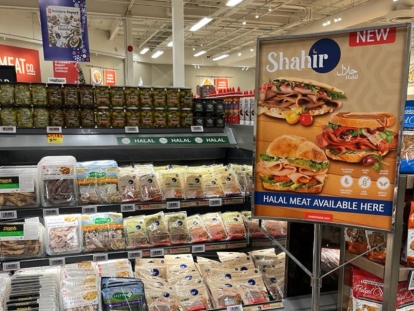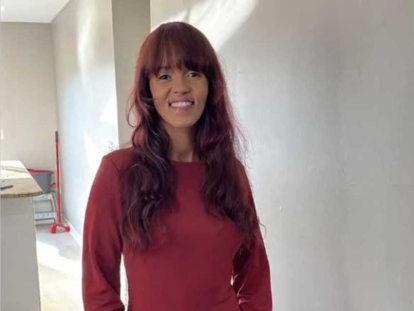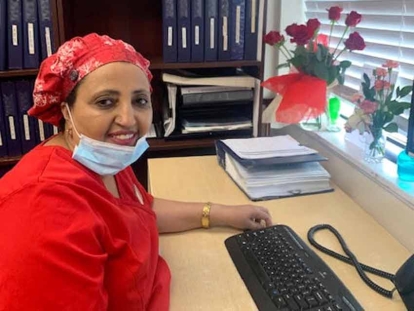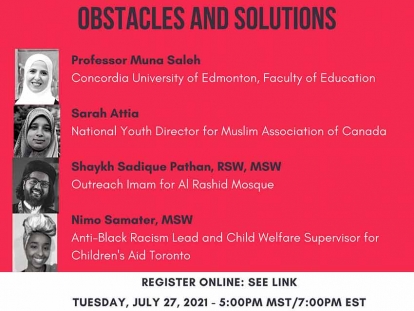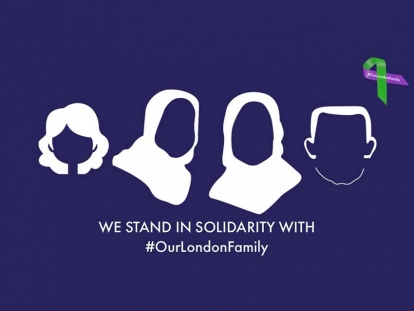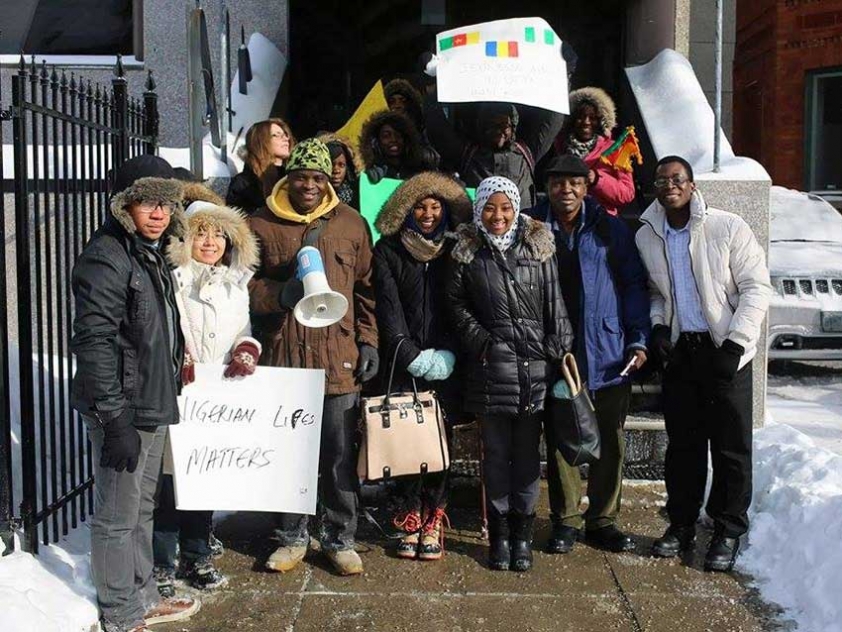 Students Halima Bello, Aissatou Bah, Virgile Kao and Victor Wilson organized a tribute to the victims of the Baga Massacre on January 30th.
Virgile Kao
Students Halima Bello, Aissatou Bah, Virgile Kao and Victor Wilson organized a tribute to the victims of the Baga Massacre on January 30th.
Virgile Kao
Feb
On January 30th, a group of West African students and their supporters gathered at the Nigerian High Commission on Metcalfe Street. They were there to pay tribute to the victims of Boko Haram’s latest attack on civilians in the town of Baga and in neighbouring towns in Northern Nigeria in early January. Despite the cold, they set flowers out in front of the Commission in memory of those who had died.
Amnesty International (AI), who has accused Boko Haram of committing war crimes and crimes against humanity, stated “Of all Boko Haram assaults analysed by Amnesty International, this is the largest and most destructive yet. It represents a deliberate attack on civilians whose homes, clinics and schools are now burnt out ruins.”
The Nigerian government only reports 150 deaths, but this is disputed by AI and it is estimated that the death toll could be as high as 2000, with a reported 35,000 people displaced. Civilians are being targeted by Boko Haram because of their real or perceived collaboration with government security forces to take down the group. As Nigeria is fast approaching a highly contested election, some commentators have speculated that this is the reason the numbers of those killed are being downplayed by the current government.
But for Halima Bello, 25, the violence in Nigeria is more than numbers, the country is her home. Halima is the head of volunteers for the University of Ottawa’s West African Youth Association (WAYA). In an interview with Muslim Link, Bello stated that “as a Nigerian the attacks perpetuated by Boko Haram, not only in Baga, are really traumatizing, saddening, but also frustrating in the sense that it shows the weakness of our government to protect its own population and to punish those who are destroying not only families but also our country. It’s creating feuds between Muslims and Christians although these terror acts have nothing to do with religion but everything to do with politics.”
Halima organized the event with both Muslim and Christian West African students, including Nigerian Canadian Victor Wilson, founding President of Canadian-African Initiative for Peace and Conflict Management (CAIPCOM) and past President of the Nigerian Canadian Association Ottawa (NCAO). Wilson wants the world to be paying more attention to the situation in Nigeria. “Globalization means that violence and terrorism are now borderless, and an act of terror in one little unknown village in Nigeria can have profound impacts on the international community. The attack on Baga must prima facie be considered as a threat to our collective humanity. The challenge to human security in Northeast Nigeria poses an implied risk to our global sense of existence. Nigeria must not be isolated by the international community by excusing Boko Haram terrorism in Nigeria as a Nigerian problem. It takes a broader approach and a greater cooperation from regional governments and the international community to curb terrorism,” he explained.
For Guinean Aissatou Bah, 21, the President of WAYA, organizing the event was a way that she, as a Muslim, could try to show the true face of her faith. “It was shocking to see other fellow Muslims terrifying and killing other people under the name of Islam,” she said, “As far as I know, this is not the religion that I’m practising or I’ve been taught since my childhood. Knowing the true meaning of Islam and how peaceful was our Prophet (pbuh) has helped me address this tragedy. This is one of the reasons why I decided to work with friends from different faiths, in order to show that Muslims too are concerned by Boko Haram’s actions.” Bah feels that the entire region is at risk if Boko Haram is not stopped. “Coming from a West African background, this event had a big impact on us as individuals but also as a community with multiple ethnicities and faiths,” she explained, “Because of this massacre and the existence of Boko Haram, people from the affected regions are forced to live in fear and insecurity. The past attacks perpetrated by Boko Haram including the one in Baga might cause political instability and security problems in Nigeria and the neighbouring countries. Recently, Cameroon and Niger have been threatened.”
For Ivoirian Virgile Kao, 25, a volunteer with WAYA, the lack of media attention to the massacre was frustrating. “Our generation has the power to communicate and participate in what the media, the world, sees and says about us,” he shared, “For me it was unacceptable that this genocide was so overlooked. As a human being I was outraged, as an African I was crushed to see that just by the colour of my skin, if my village, my family, my city is wiped off of the face of the world, it wouldn't matter.”
Wilson is also upset with how the tragedy was covered by media “I believe the tragedy did not get enough media attention and in fact, the little attention it got was either politicized and/or lopsided in its analysis,” he stated, “Comparative to other events that happened within the same period, such as the Charlie Hebdo attack in France and the on-going ISIL attacks in the Middle East - in which the victims reported are far less relative to the Baga attacks and Boko Haram terror that has taken thousands of innocent lives within the last five years. The Baga tragedy did not seem to awake the conscience of the media and commentators.”
The organizers felt that the event helped to make them feel less powerless in the face of the violence currently threatening their homelands and the lack of concern from mainstream media and the international community. “I was proud to see two African students’ unions, West African Youth Association and the Club Mont Cameroun, from the University of Ottawa united to give tribute to the victims of Baga,” Bah said. “We might be young and living abroad, but we still care about our people and our continent. I’ve also learned that even though the massacre of Baga didn’t get enough media coverage, the West African diaspora should take action and make sure that these victims aren’t forgotten. It is our duty to ensure a better visibility of this conflict around the world.”
This article was produced exclusively for Muslim Link and should not be copied without prior permission from the site. For permission, please write to info@muslimlink.ca.

